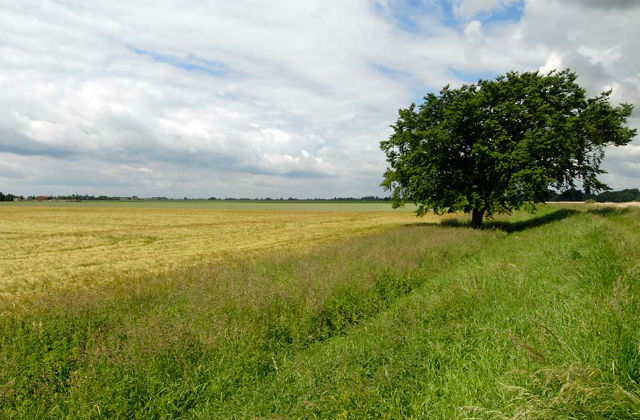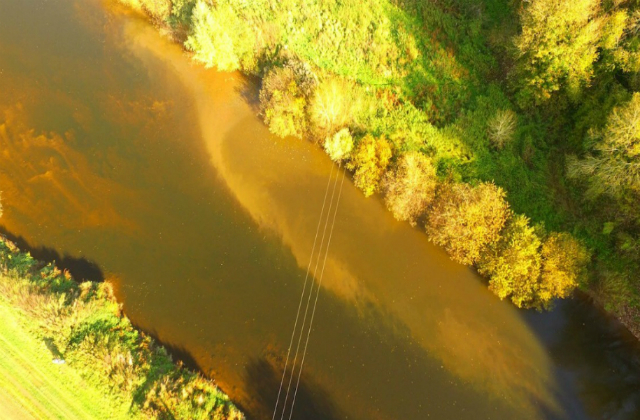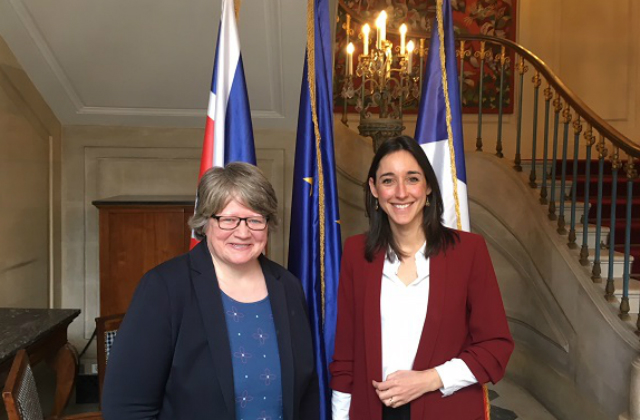Secretary of State speaks at NFU conference
 Secretary of State has addressed attendees and delegates at this year’s NFU Conference in Birmingham, discussing a number of issues close to the hearts and minds of farmers ahead of the consultation paper for the Agriculture Bill later this year.
Secretary of State has addressed attendees and delegates at this year’s NFU Conference in Birmingham, discussing a number of issues close to the hearts and minds of farmers ahead of the consultation paper for the Agriculture Bill later this year.
A number of key stakeholders have already praised the government’s plans to improve animal welfare, as well as emphasising the importance of high quality food production, which the Secretary of State today claimed to be an important public good.
Ian Wright CBE, Food and Drink Federation (FDF) Director General, said:
In just a few months the Secretary of State has placed food and drink at the heart of Government thinking. Under his leadership, Defra has blossomed – as evidenced by the creation of the Food and Drink Sector Council. The FDF has long argued for such a Council and is committed to playing our full part in making it the engine for change across the ‘farm to fork’ supply chain. Its role must be to deliver a long term, cohesive food and drink policy across Whitehall. This is much needed at a time of huge change and uncertainty for industry. The future of UK agriculture is a key question for FDF members – and sustainable food production must be at its core.
Country Land and Business Association (CLA) President Tim Breitmeyer said:
This latest statement shows how much the Government is embracing our vision for a policy based on supporting profitable food production and rewarding farmers for the public benefit they deliver. It's a model that will transform the relationship between the public and the farmers who deliver so much that we want from our countryside, in addition to high quality food.
British Veterinary Association (BVA) President John Fishwick said:
It is essential that the UK’s post-Brexit agriculture policy recognises animal health and welfare as public goods. If we are to maintain our global reputation for high standards of animal health and welfare and improve our trade links with the rest of the world, any future investment in the UK farming industry must be targeted at measures to maintain and enhance those standards.
“We are therefore delighted at this new statement which chimes with the veterinary profession’s commitment to continually improve animal health and welfare in the UK.
State of the Environment report on water quality

The Environment Agency has published a State of the Environment report on water quality and this has been covered in the FT, Daily Telegraph, Metro, Sun and Daily Mail.
Although water quality has improved over the last 30 years and the number of total pollution incidents have fallen by almost two thirds since 2001 there are far too many of the most serious and damaging pollution incidents. The Environment Agency has taken more than 50 million samples to monitor water quality over the past 20 years. The report revealed that agriculture is now the largest sector responsible for water pollution.
Emma Howard Boyd, Chair of the Environment Agency, commented on the report:
Water quality is better than at any time since the Industrial Revolution thanks to tougher regulation and years of hard work by the Environment Agency and others.
But there are still far too many serious pollution incidents which damage the local environment, threaten wildlife and, in the worst cases, put the public at risk.
I would like to see fines made proportionate to the turnover of the company and for the courts to apply these penalties consistently. Anything less is no deterrent.
Minister Coffey visit to Paris
 Environment Minister Thérèse Coffey visited Paris yesterday to meet Brune Poirson, Minister for the Ecological and Inclusive Transition, to discuss all things environment including biodiversity, plastic in the oceans and ivory.
Environment Minister Thérèse Coffey visited Paris yesterday to meet Brune Poirson, Minister for the Ecological and Inclusive Transition, to discuss all things environment including biodiversity, plastic in the oceans and ivory.
Minister Coffey also met with French company Citeo to learn more about the French system to reduce packing waste and increase recycling. Citeo is a collective of producer organisations working together to reduce packing from waste, including through improving packaging design. Members include Coca-Cola, Kronenburg, and French supermarkets.
Speaking about her visit to Citeo Environment Minister Thérèse Coffey said:
We are working with industry looking at ways to improve recycling rates, including how we can better incentivise producers to manage resources more efficiently. The producer responsibility regime for packaging waste here in the UK has significantly improved recycling rates to 60% in 2015, which we want to see go higher.
That is why we are keen to understand how other countries do things. I have been impressed by the measures to reduce packaging waste in France. We support the idea of making producers take more responsibility for reducing waste. I look forward to setting out more detail on how we will do this through our Resources and Waste Strategy later this year.
Electric dog training collars
There is coverage in this morning’s Sun of the Dogs Trust’s call on government to ban electric dog training collars.
The Secretary of State will shortly be meeting Ross Thomson MP who has campaigned against the use of shock collars passionately and with energy. Michael Gove is looking forward to hearing more from Ross, and members of the Dogs Trust, about this issue as he wants to do all he can to improve the welfare of animals.
The government believes dogs should be trained using reward based techniques including using toys, food and praise, as set out in the new welfare codes for dogs published last year.
These codes are just one part the government’s drive to improve animal welfare from increasing maximum prison sentences to up to five years to cracking down on unscrupulous puppy breeding.
Defra use of bottled water
The Mirror carries coverage of Defra’s catering provider’s spend on bottled water. There is criticism from Tim Farron MP that £15,581.57 was spent on bottled water by the department’s catering provider between October 2014 and September 2017.
The figures were revealed by Environment Minister Thérèse Coffey in response to a parliamentary question.
Since 2014, the amount of money spent on purchasing water bottles by Defra’s catering provider has fallen by over a third, Defra as a department does not purchase any plastic water bottles.
The current catering contract expires this summer. The tender for the new contract stipulates that the supplier must not use plastic bottles and single use plastics. Re-usable glasses are now supplied.
Follow us on Twitter: @defragovuk
Subscribe to the blog for email updates.